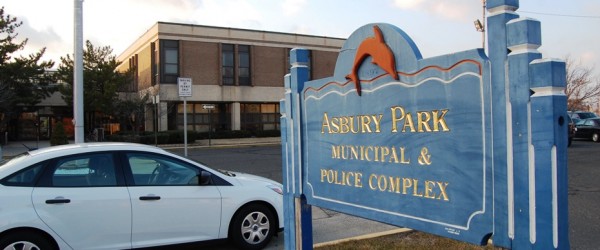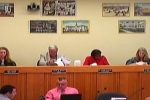Study commission could stymie council opponents
Ward system and direct election of Mayor at issue
The city council is now reviewing whether to ask voters to establish a charter study commission to consider changes to Asbury Park’s form of government.
But that decision would not just put the question of establishing a five-member charter study commission on the ballot in November. It could also stop some of the council’s political opponents from submitting their own new petition directly calling for a referendum on a new form of government they favor.
That direct referendum procedure is allowed by law — but a move first by the governing body to seek voter approval for a charter study commission stops it, according to Asbury Park City Attorney Frederick Raffetto. The commission would review the current form of government, and either conclude it meets the city’s needs or recommend a new form of government for voter approval.
On February 6, political activist Duane Small – an outspoken critic of the incumbent council – submitted a petition to the city clerk calling for a referendum to change the city’s form of government. The new form Small outlined in his petition would split the city into six wards, each with its own council member, as well as three more council members elected at large. The mayor would be directly elected, and would run the city.
Currently, Asbury Park has a five-member council. All council members are elected citywide and the mayor is selected from the council, and has few additional powers, except to run the council meetings. The city manager is considered the chief executive officer of the city. The council is elected in a non-partisan May election. Small’s proposal would move the election to November.
Small’s petition required the signatures of one quarter of the city’s registered voters, or 1610 valid signatures. After initially coming up short, Small amended the petition to get the 335 valid signatures he needed.
Still, Raffetto rejected the petition on March 13 because it did not clearly state whether candidates would run in a partisan election — and thus be on the ballot in the columns of the major parties — or would continue to be elected in a non-partisan fashion, with all the candidates in one column without party affiliation.
Small has previously announced that he and his supporters would get the required signatures again if their petition was rejected by Raffetto. But if the council passes an ordinance requiring a charter study commission, Small would be stopped dead in his tracks, according to Raffetto.
“If council should determine to enact an ordinance regarding this issue, then, once the ordinance is adopted, [it] would, in fact, block the submission of any further petitions seeking to place the question on the ballot relating to an optional plan of government under the Faulkner Act,” Raffetto said, referring to the law allowing Small’s preferred form of government.
Small was unable to be reached for comment today. He has previously stated that he intends to challenge Raffetto’s ruling in court, but he has yet to publicly name an attorney to represent him, nor does it appear that any such challenge has been filed.
Raffetto said the council is expected to continue consideration of the charter study commission at its workshop meeting on Wednesday. If the council passes an ordinance calling for the commission, voters would be asked in November for their approval, and to elect its five members.
But the city moving to ask for a charter study commission could cause an additional legal morass. If Small does file suit to overturn Raffetto’s rejection of his petition, his lawyer would likely seek to stop the city from asking voters to approve the commission.
A judge, and potentially appeals courts, would then have to make the call between Small’s petition and the city’s desire to seek a charter study commission.
The city council will hold its workshop meeting on Wednesday, April 4 at 6 p.m. in city hall on Main Street.







